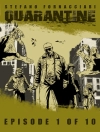“I’m not really worrying, but it’s very isolated. Boscath is like an island in some ways.”
“I see what you mean, ” nodded Jock.
“And Rhoda isn’t used to islands.”
James Dering and his new wife Rhoda are returning from their honeymoon, and Jock and Mamie Johnstone are delighted to welcome them to their new home on a neighbouring farm. But Mamie’s concern proves justified, and Rhoda, a talented painter who has chosen marriage over art, finds rural Scotland lonely after life in London. She soon finds new inspiration in the beauty around her, and in the process gives the bright but difficult young Duggie a new lease on life. But her art will also uncover secrets, and lead to dramatic, far-reaching consequences for those around her.
In this novel, in which characters from Vittoria Cottage and Music in the Hills recur, D.E. Stevenson wonderfully evokes the chill and bluster of winter in the Scottish Borders, contrasted with the warmth and charm of her irresistible characters. This new edition features an introduction by Alexander Mc Call Smith.
“Miss Stevenson has her own individual and charming way of seeing things.” Western Mail
O autorze
Born in Edinburgh in 1892, Dorothy Emily Stevenson came from a distinguished Scottish family, her father being David Alan Stevenson, the lighthouse engineer, first cousin to Robert Louis Stevenson.
In 1916 she married Major James Reid Peploe (nephew to the artist Samuel Peploe). After the First World War they lived near Glasgow and brought up two sons and a daughter. Dorothy wrote her first novel in the 1920’s, and by the 1930’s was a prolific bestseller, ultimately selling more than seven million books in her career. Among her many bestselling novels was the series featuring the popular 'Mrs. Tim’, the wife of a British Army officer. The author often returned to Scotland and Scottish themes in her romantic, witty and well-observed novels.
During the Second World War Dorothy Stevenson moved with her husband to Moffat in Scotland. It was here that most of her subsequent works were written. D.E. Stevenson died in Moffat in 1973.












